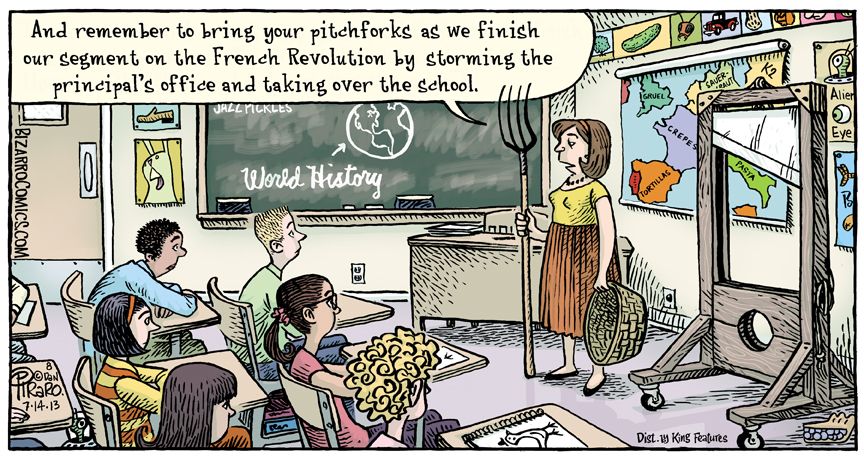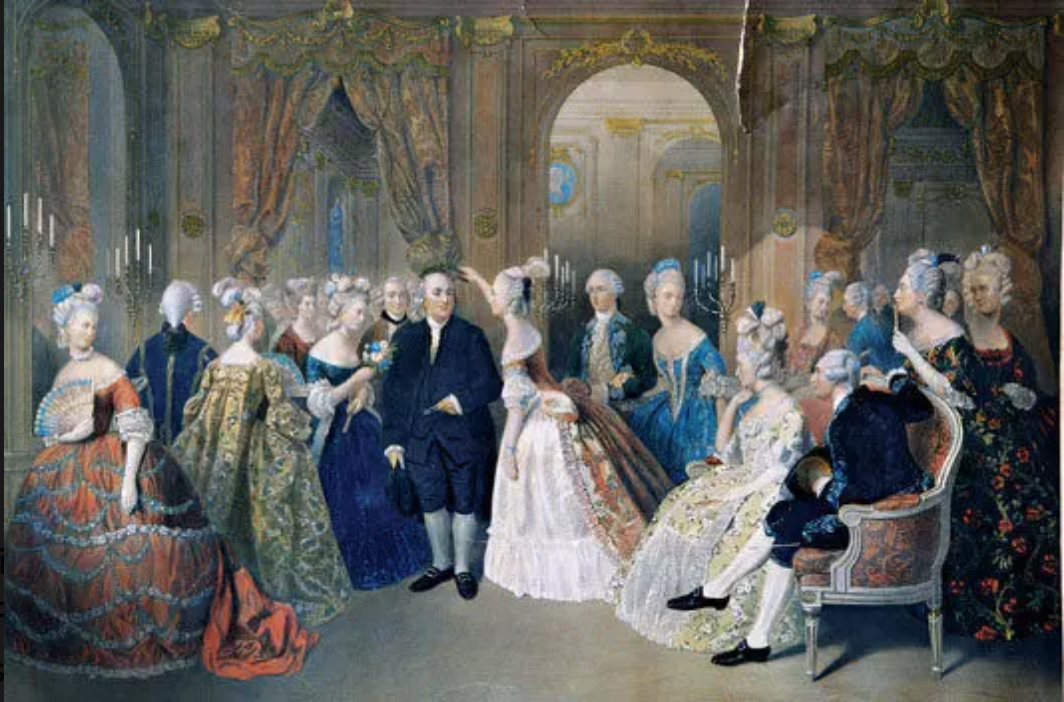Lesson 1 - Introduction: Could the French Revolution have been predicted (and prevented)?
|
This is the first lesson on the most important event in modern history, the French Revolution. It is one of the few events that is studied in history lessons all around the world. To some extent, you already know why it is going to happen.
The political form of feudalism, the absolute monarch, had been replaced or weakened in the economically advanced countries of Britain and the Netherlands. Even where 'enlightened' absolute monarchs still ruled, their enlightened reforms throughout the 18th century, often weakened the institution of absolutism itself. |
|
And then, there were the radical new ideas. Beginning with the Scientific Revolution, the application of reason resulted in rapid developments in our understanding of the natural world. When this same rational approach was applied to the science of society and politics, the works of Locke, Voltaire and Rousseau condemned the idea of the 'divine right of kings' to the dustbin of history.
If kings remained in power, it was not because it was rational for them to do so, but because they were willing to reject reason itself. Those, like Voltaire, who had seen alternatives to absolutism up close, were full of praise for constitutionalism. Others like Rousseau knew exactly what he thought was wrong with absolute monarchy. |
|
'The way the English run their country is excellent. This is not normally the case with a monarchy, but because there is a parliament, English people have rights. They are free to go where they wish; they can read what they like. They have the right to be tried properly by law and all individuals are free to follow the religion of their choice.' |
'Even the best king will do what he likes, if he feels like it. There is one reason why a republic will always be better than a monarchy. If the people have power, they will appoint men of talent and experience to the highest post. Ministers appointed simply by a nod from the King are often a disgrace to their position.' |
The Seven Years' War was, in many ways, the last of the wars of religion. The Protestant nations of Britain and Prussia defeated the largely Catholic forces led by France. The economic consequences of French defeat and her subsequent successful, though expensive, support of the American revolutionaries, almost bankrupted the French state. But above all, it was the example of the American revolt, an ordinary people overthrowing a 'tyrannical monarchy', that was was most important about 1776. The Marquis de Lafayette the young French noble who went to fight with the Americans against the British at the age of 19, 'returned home to his native land full of ideas about liberty and republics.' The radical ideas of Tom Paine's Common Sense and Jefferson's Declaration of Independence, 'We hold these truths to be self-evident, that all men are created equal', provided a rational but revolutionary basis for the legitimating the power of the state. Democracy was to be the future.
Activity - Using the past to predict the future (and the Tocqueville paradox).
|
(Above - Benjamin Franklin US ambassador to France in a Paris salon in the 1780s)
|
Part 1
It is Paris, 1780. You are a young intellectual with an interest in history and a frequent visitor to one of the many salons in the city. On one such visit you meet Benjamin Franklin and also one of King Louis XVI's personal advisors. You have a long discussion with the advisor in which you explain why the French king, an absolute monarch, is in danger of being overthrow. Outline the main points of your argument. Part 2 Alexis de Tocqueville wrote that 'experience teaches that the most dangerous time for a bad government is usually when it begins to reform'. What do you think de Tocqueville meant by this? Explain why it is a paradox and consider how this might influence the advice you have for the King. |


